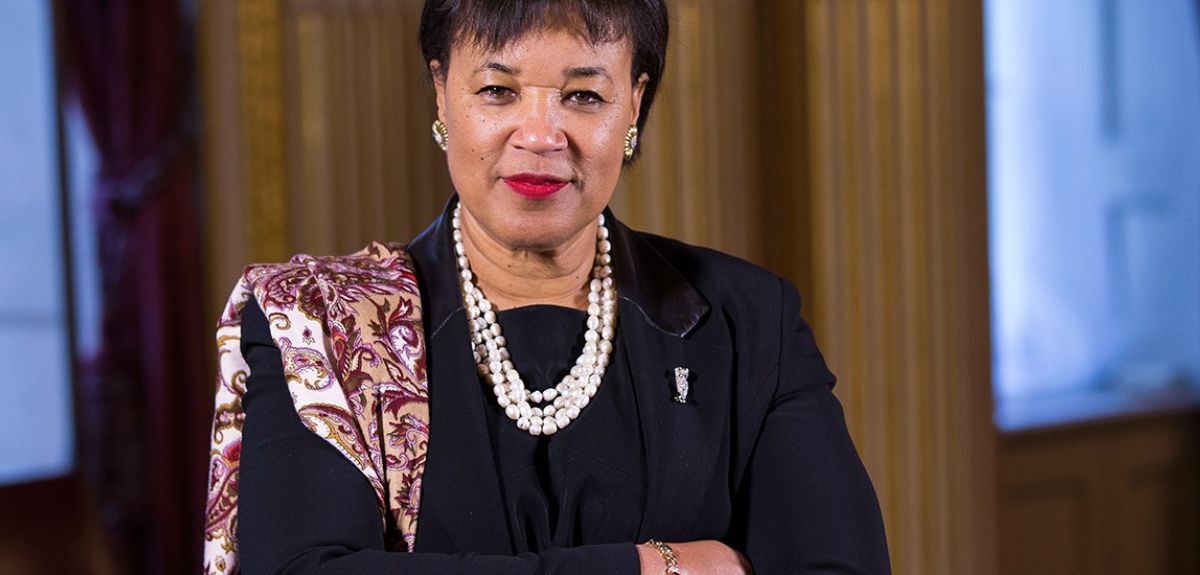
Credit: Freddie Onadeko
'Our future is greater than our past'
Describing the Commonwealth as the organisation best placed to 'bring hope to a fragile world', Secretary-General Rt Hon Patricia Scotland QC delivered the 2016 Romanes Lecture at the Sheldonian Theatre.
Baroness Scotland, who was introduced by the Vice-Chancellor of the University of Oxford, Professor Louise Richardson, defined the Commonwealth's distinctive contribution to areas of pressing global concern, including climate change, countering violent extremism, and eliminating violence against women and girls.
She also reminded her audience of the words spoken 60 years ago by Her Majesty Queen Elizabeth II, who articulated the Commonwealth's core values of 'friendship, loyalty and the desire for freedom and peace'.
From its beginnings in the late 19th century, the Commonwealth has evolved through an era of decolonisation and independence. Bound by much more than governments, with deep links in education and civil society, it is today home to 2.2 billion citizens, almost two-thirds of them under the age of 30.
The sixth Commonwealth Secretary-General, Patricia Scotland was born in Dominica and moved to the United Kingdom with her family, growing up in east London. Trained as a lawyer, she became the first black woman to be appointed a Queen's Counsel in 1991, and at 35 was also the youngest woman ever to be made a QC. She joined the House of Lords in 1997 as Baroness Scotland of Asthal, serving as a minister in the Foreign Office, Home Office and Lord Chancellor's Department. Her work to reform the criminal justice system included the introduction of the Domestic Violence Crime and Victims Act. Appointed Attorney General in 2007 – the first women to hold the post since it was created in 1315 – she also initiated the Eliminate Domestic Violence Global Foundation in 2011.
The Romanes Lecture is the annual public lecture of the University of Oxford. A most distinguished public figure from the arts, science or literature is invited by special invitation of the Vice-Chancellor. The occasion was created in 1891, following an offer by John Romanes of Christ Church to fund an annual lecture, and the first address was given in 1892 by William Gladstone.
 New Year Honours 2026
New Year Honours 2026
 New study estimates NHS England spends 3% of its primary and secondary care budget on the health impacts of temperature
New study estimates NHS England spends 3% of its primary and secondary care budget on the health impacts of temperature
 International collaboration launches largest-ever therapeutics trial for patients hospitalised with dengue
International collaboration launches largest-ever therapeutics trial for patients hospitalised with dengue
 Oxford-built multi-agent assistant for cancer care to be piloted in collaboration with Microsoft
Oxford-built multi-agent assistant for cancer care to be piloted in collaboration with Microsoft